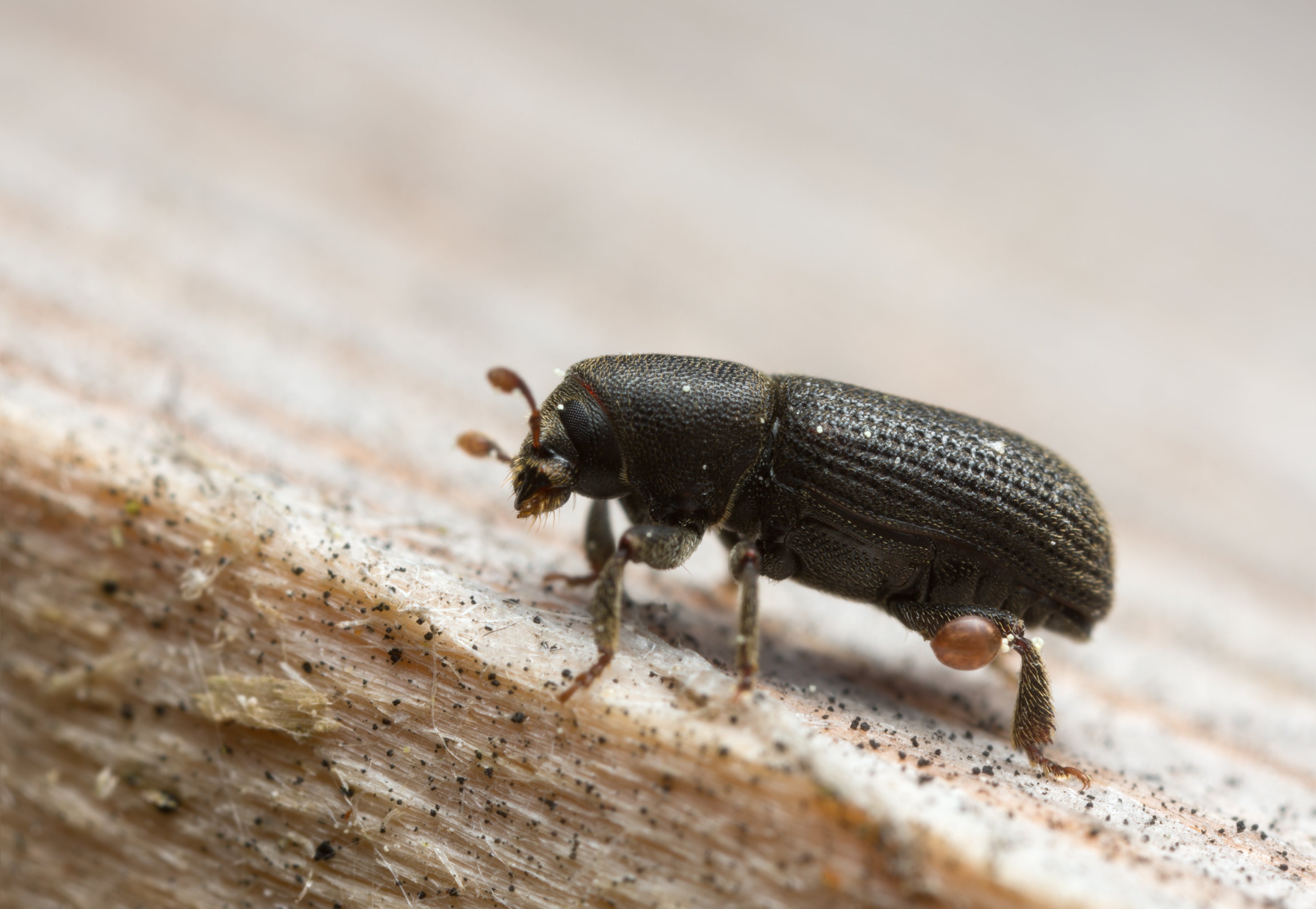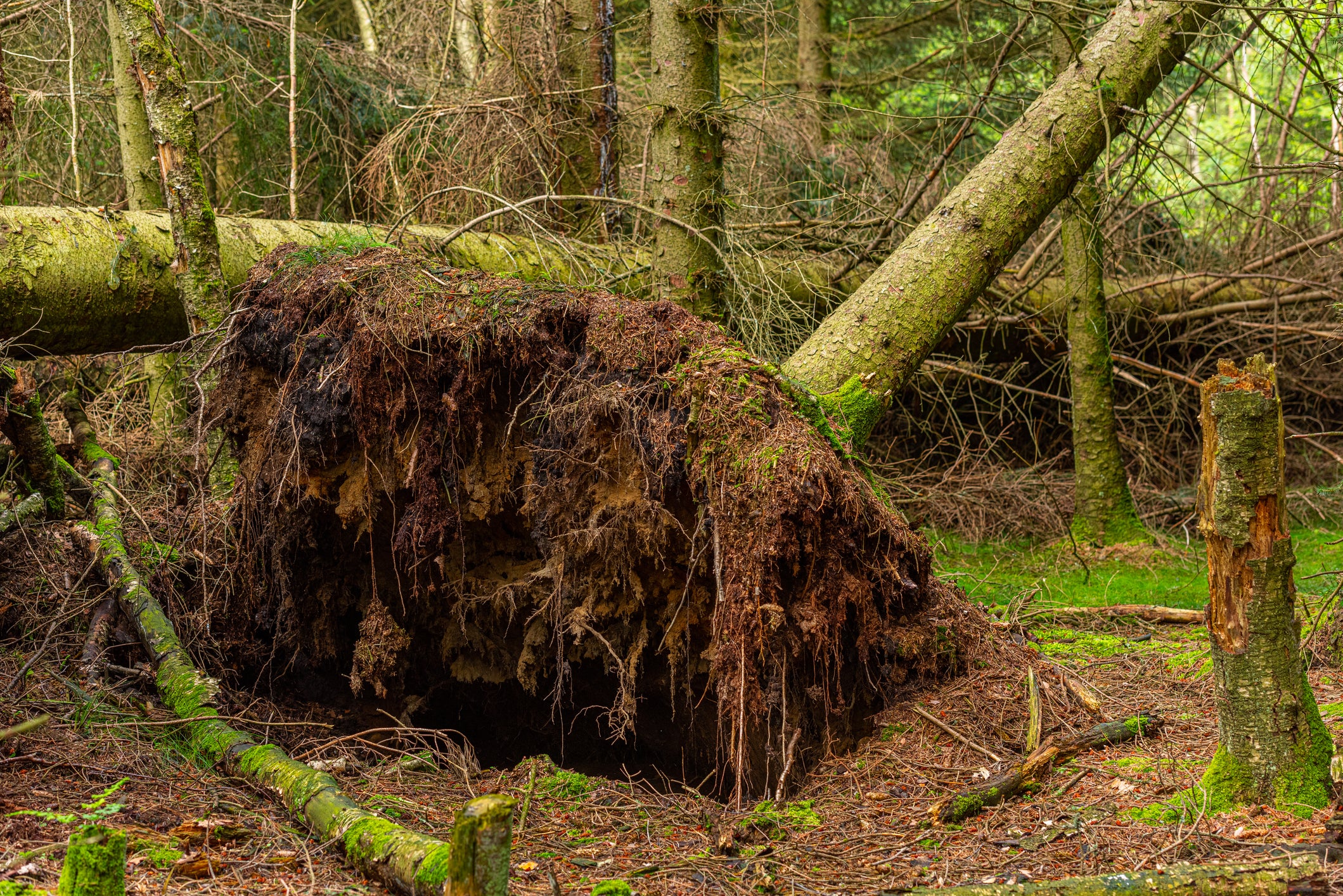European forests growing more vulnerable to insect pest outbreaks, study says
Increase in forests’ vulnerability to insect pests coincides with temperature rise, according to research

European forests have grown more vulnerable to insect pest outbreaks over the last four decades, new research finds.
The study combines climate and satellite data with machine learning techniques to explore forests’ changing vulnerability to fires, extreme winds and insect pest outbreaks from 1979 to 2018.
It finds that, at a Europe-wide level, there has been little change in forests’ vulnerability to fires and “windthrows” – events where trees are uprooted by extreme wind – over the past four decades.
However, forests’ susceptibility to insect pests has increased “substantially” – particularly since the year 2000, the scientists say.
The research, published in the journal Nature Communications, says that the increase “appears largely driven” by temperature rise in Europe.
Study lead author Giovanni Forzieri, a scientist at the European Commission’s Joint Research Centre, told The Independent: “We found that vulnerability to insect outbreaks in particular has grown over this period, especially in the rapidly warming northern forests found in parts of Scandinavia and northern European Russia.
“These regions have seen increases in insect vulnerability of around 2 per cent per decade.”
The study focuses on three major pest groups, including bark beetles, defoliators (leaf-eating insects) and sucking insects, such as aphids, leafhoppers and mites.
“Insects can cause significant reductions in [plant growth] and ultimately lead to large pulses of tree mortality across the landscape,” said Dr Forzieri.
“For many years these insects may be at low, or endemic, levels. But, when conditions favour them, their populations can build up to damaging levels.”
The study does not investigate why temperature rises could be boosting forests’ vulnerability to insect pests, however a previous study published in Science found that global warming could boost the activity of insect pests by allowing both to eat and reproduce at a faster rate.
The new research analyses both spatial and temporal changes to forests’ vulnerability to climate-related disturbances, including insect pest outbreaks, fires and windthrows, from 1979 to 2018.
Forest “vulnerability” is a measure of how badly a forest is affected when a disturbance takes place, Dr Forzieri explained.
“Therefore, the lack of a clear signal of change in vulnerability to fires and windthrows does not mean that there were no changes in occurrences of these disturbances,” he said.
“Instead, the absence of a trend in vulnerability indicates no, or limited, variations in the ‘susceptibility’ of forests to these disturbances.”

While the researchers detected no growing trend in vulnerability to fires and windthrows at a Europe-wide level, it is worth noting that some areas have seen increases in vulnerability to fire and windthrows, he added.
“Locally significant positive trends in vulnerability to fires appear in the Iberian Peninsula, Italy, southern France and parts of Belarus and Ukraine, and are associated with an increase in water stress,” he said.
“Positive trends in vulnerability to windthrows are evident in the Balkan countries and parts of Portugal and Norway – following increases in precipitation, snowfall and wind speed.”
A review of more than 100 scientific studies conducted by the research group Science Brief concluded that global wildfire risk is increasing as a result of rising temperatures and changes to rainfall patterns.
Join our commenting forum
Join thought-provoking conversations, follow other Independent readers and see their replies
Comments
Bookmark popover
Removed from bookmarks